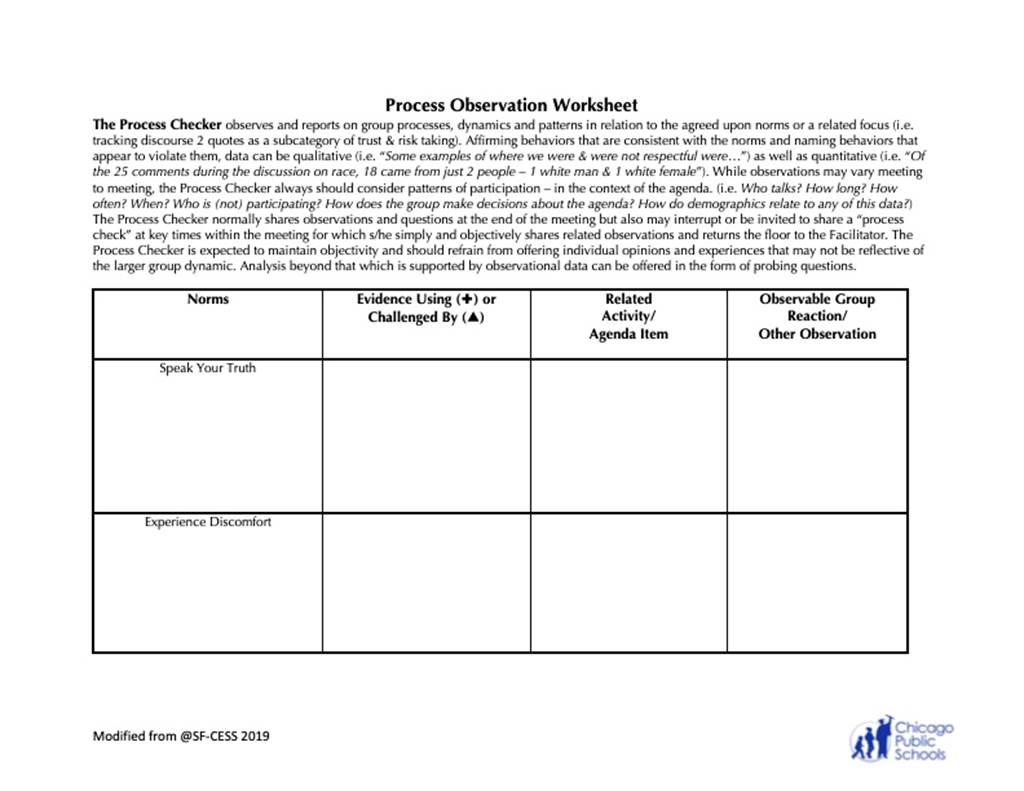24 June 2022
Process Observation Worksheet
The Process Checker observes and reports on group processes, dynamics and patterns in relation to the agreed upon norms or a related focus.

The Process Checker observes and reports on group processes, dynamics and patterns in relation to the agreed upon norms or a related focus (i.e. tracking discourse 2 quotes as a subcategory of trust & risk taking). Affirming behaviors that are consistent with the norms and naming behaviors that appear to violate them, data can be qualitative (i.e. “Some examples of where we were & were not respectful were...”) as well as quantitative (i.e. “Of the 25 comments during the discussion on race, 18 came from just 2 people – 1 white man & 1 white female”). While observations may vary meeting to meeting, the Process Checker always should consider patterns of participation – in the context of the agenda. (i.e. Who talks? How long? How often? When? Who is (not) participating? How does the group make decisions about the agenda? How do demographics relate to any of this data?) The Process Checker normally shares observations and questions at the end of the meeting but also may interrupt or be invited to share a “process check” at key times within the meeting for which s/he simply and objectively shares related observations and returns the floor to the Facilitator. The Process Checker is expected to maintain objectivity and should refrain from offering individual opinions and experiences that may not be reflective of the larger group dynamic. Analysis beyond that which is supported by observational data can be offered in the form of probing questions.
Related Tools
Racial Equity Analysis Tools
Seattle Public Schools
Introduction to Constructivist Listening
Adapted from National School Reform Faculty and the National Equity Project



